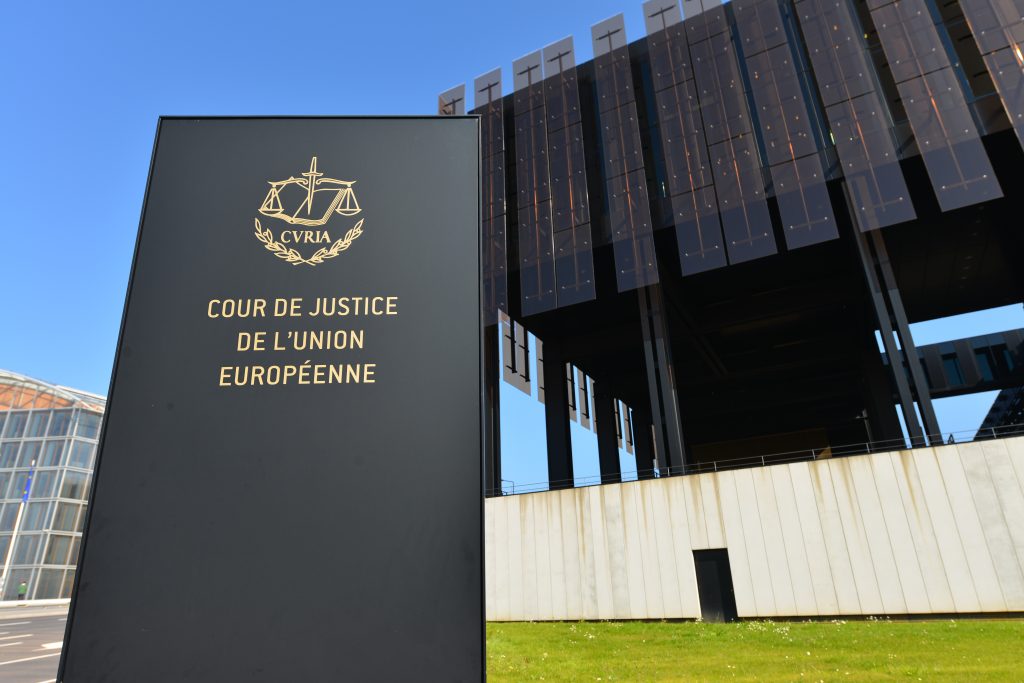
THE MERCHANT CLASS ACTION AGAINST MASTERCARD AND VISA
An original and unique claim
This claim is for damages for the unlawful charging of all commercial card MIFs to businesses across the economy.
Unlike other individual claims before the courts, this claim covers all UK businesses (as well as certain non-UK businesses), and is specifically focused on commercial card MIFs.
The Proposed Class Representatives seek to recover commercial card MIFs on transactions where payments were processed in the UK.
FAVOURABLE PRECEDENTS ON THE CORE ELEMENTS OF THE CLAIM AND A CERTIFIED CLASS ACTION
The Proposed Class Representatives believe the case is strong. Competition authorities and courts in the EU and UK have found that MIFs for accepting consumer credit and debit cards were unlawful. For similar reasons, it will be argued that businesses were also unlawfully charged for accepting commercial cards.
On 9 August 2024 the CAT granted the CPO authorising the Proposed Class Representatives to continue the claim as a class action on behalf of eligible UK merchants. The claim will now proceed to trial.
The CAT has also directed that a notice be issued to explain the claim, who is affected, their rights in relation to it, how to exercise those rights, and any related deadlines. A copy of the CPO and the Notice of CPO can be found on the Documents page
Excessive MIFs across the economy could total billions of pounds. Your business could get compensation with interest if the case succeeds.
Join the claim at no cost
The Proposed Class Representatives seek to represent all businesses, of all sizes, that accept commercial card payments.
All you need to do to join the claim is to register your details on this website. When you register, you will belong to one of two groups:
If your average annual turnover pre-Covid was £100 million or more, you will be in the “opt-in” group. “Opt-in” means that a business must actively and formally choose to join the proceedings against Mastercard, Visa or both. You can choose to join either or both of the claims against Mastercard and Visa.
To opt into the claim you may do so by registering your details here. You will need to provide your name, postal address, email address and the name of the individual authorised to opt your business into the class.
The deadline for opting in is 10 February 2025.
If your average annual turnover pre-Covid was less than £100 million you will be in the “opt-out” group. “Opt-out” means that a business is automatically included among the claimants and must only register its interest. If the claim succeeds, registered “opt-out” claimants will be paid their share of damages. That means you are automatically included in the claim, unless you choose to opt out, and will be entitled to a share of any damages or settlement. You can choose not to be part of the claims against Mastercard or Visa by following the steps in What if my business is in the “opt out” category but I do not wish to join the claim? on what you can do if you do not wish to join the claim. Please note that by opting out, you will not be eligible to receive any payment in the future, if compensation is awarded.
The case is fully funded by a third-party litigation funder, Bench Walk Advisers, and the case is fully insured. A claimant will not need to set aside any budget to participate in the case.
No downside risk: claimants will not pay anything towards the claim
If the case does not succeed (on both the “opt-in” and “opt-out” sides), claimants will pay nothing – either towards our costs, or towards the other sides’.
If the claims succeed, then costs and expenses depend on whether you are in the “opt-in” or “opt-out” category. If you are in the “opt-in” category, a share of the damages will pay for the funding and administration of the case. If you are in the “opt-out” category, no such deduction will be made.
Legal and competitive context
Why bring this class action against Mastercard and Visa ?
Mastercard and Visa each entered what we say are anticompetitive agreements with acquiring banks. Under these anticompetitive agreements, the MIFs which acquiring banks pay to card issuing banks and institutions have not been set by the market, but by the schemes themselves. Banks then pass on these fees to businesses. We say these fees are anticompetitive and unlawful.

Previous decisions
The highest courts in the EU and the UK ruled against consumer card intra-EEA and UK domestic MIFs. For consumer card inter-regional MIFs, the EU did not reach a formal infringement decision, instead it settled its case in return for the schemes reducing their fees by an average of 40%. The level of this reduction speaks volumes.
In the successful consumer card domestic MIF case brought by Sainsbury’s against Mastercard which settled in 2021, the evidence showed that the domestic consumer card MIF was unlawful, and that the MIF should be zero. The Supreme Court (the UK’s highest court) agreed.
Very similar evidence will show that the same is true of commercial card MIFs.

Value of claim
This claim is potentially worth billions of pounds to businesses across the economy. We are seeking a full refund of commercial card MIFs incurred by businesses. For some claimants, this could amount to tens of millions of pounds or more in excessive charges. We believe that there is a very high chance of winning substantial damages, if the Tribunal certifies the claims. The value of your claim will depend on the nature of the business, the Multilateral Interchange Fees applied, and the percentage rates at which they were applied.
The average commercial card MIF rate is around 1.6% but we say the correct level should be zero.
This means that for every £100 transaction, up to £1.60 is unlawfully overcharged by the credit card giants on payments made by commercial credit and debit cards. These costs are borne by businesses and represent a significant overcharge across the economy.
The claim will still be highly relevant and valuable even if the Tribunal were to find that businesses had passed some (but not all) of the overcharge to their consumers.
The Proposed Class Representatives in this case have instructed Harcus Parker as their solicitors to bring the case. Harcus Parker is a leading litigation firm, specialising in collective actions – that is, cases brought on behalf of a large number of clients collectively. Tom Ross and Jeremy Robinson steer the firm’s competition litigation department and are recognised leaders in competition law and litigation. Harcus Parker has instructed a team of leading barristers and economists.
Reaching out to you
BB Merchant Services, formerly known as Bankbrokers, is a global organisation specialising in reducing merchant services costs. Also, BB Merchant Services has participated in several historical merchant services class actions. Established in Stockholm in 2008 and headquartered in Oslo, BB Merchant Services has grown internationally, with offices across multiple countries and a client base spanning diverse sectors. With a mission to be the preferred partner for merchants seeking to reduce transaction fees and participate in class actions, BB Merchant Services leverages market expertise, global benchmarking capabilities, and an extensive international network to deliver significant savings.
As your preferred partner and introducer, BB Merchant Services also facilitates access to the substantial UK class action case against Mastercard and Visa, which is focused on excessive multilateral interchange fees (MIFs) on commercial card transactions. Recognising the strength and scope of this case, we have launched a targeted awareness campaign across social media to ensure that eligible businesses do not miss the opportunity to benefit from potential compensation.
For larger organisations (with an average annual turnover of £100 million or more), BB Merchant Services provides a streamlined introduction to senior litigators at Harcus Parker. We arrange a no-cost, no obligation consultation, offering expert guidance through the process to help your business make an informed decision about joining the case.
As the only certified B2B class action in the UK against Mastercard and Visa, this commercial card claim offers an ideal route for businesses to participate without the usual litigation, financing, or insurance burdens.
For further information, please contact BB Merchant Services UK:
Phone: +44 (0) 20 3931 8205
Email: info@bbmerchantservices.com
Or visit https://bbmerchantservices.com
Partner with BB Merchant Services to explore this valuable opportunity for cost recovery and potential compensation.
